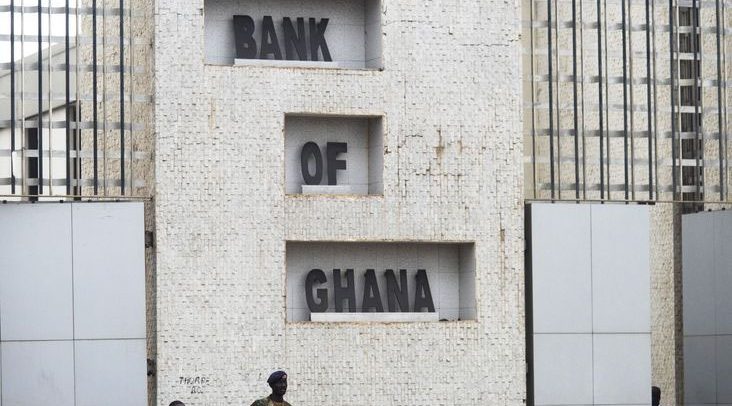THE IMPACT of the coronavirus pandemic on Ghana’s economy may result in higher non-performing loans and some capital erosion of banks, Governor of the Bank of Ghana, has warned.
Dr. Addison, who was speaking at an alumni lecture at the University of Ghana in Accra, said “the country’s debt service indicators and gross financing needs have breached the sustainability thresholds,” adding that “the non-resident holdings of the public debt, although declined, is still high at 59.9% of GDP, above the threshold of 45% for the MAC.
“Public gross financing needs are also above the 10% MAC threshold on the back of increased fiscal obligations, suggesting constrained fiscal space for growth spending. Although external financing requirement as a share of GDP has declined, and within acceptable thresholds, efforts will need to be put in place to increase buffer levels to help meet future external obligations.”
Ghana’s public debt reached 71% of the estimated GDP at the end of September 2020, fairly above the maximum early warning sustainability threshold of 70% for the Market Access Countries (MACs).
To ensure financial stability therefore, the governor said the financial sector would require constant regulatory and policy attention to identify and mitigate emerging risks.
It is for such reason, among others that he said BoG was putting greater focus on identifying the early warning signals and initiating prompt corrective actions.
“The symptoms of a weaker bank are usually poor asset quality, lack of profitability, loss of capital, excessive leverage, excessive risk exposure and poor governance conduct as well as liquidity concerns. In this respect, the Bank of Ghana will continue to strengthen all the regulatory measures implemented over the last three and half years to maintain confidence and safeguard financial stability.
“Over the next three years, in the aftermath of the pandemic, the Bank of Ghana will carefully unwind the countercyclical measures implemented, and allow the financial system to function without the regulatory forbearance put into place due to the pandemic. Banks themselves will have to remain vigilant, upgrade staff capabilities, and improve the governance and risk culture. The Bank of Ghana is optimistic that with this approach, a resilient and capable financial sector will weather the storms brought about by the pandemic and ensure soundness of the industry,” he assured.
Outlook
He said after almost four years of prudent management of Ghanaian economy, the Covid-19 external shock had partly reversed the progress made on the macroeconomic stability front. So far, the fiscal costs, in terms of stimulus package deployed to moderate the adverse socioeconomic consequences on the households and businesses, are estimated at over GH¢11.2 billion. If you add the financial sector costs and the energy sector costs, it raises the estimate of the financial burden from these three sources alone to GH¢24 billion. As of half year, it was estimated that government paid GH¢4.7 billion in excess capacity payments in the energy sector. This has pushed the debt/GDP ratio above the threshold for the Market Access Countries.
“Going forward, difficult decisions will have to be taken to reorganize public finances and expenditure priorities while exploring more sustainable revenue sources. The programme of interventions to revitalize businesses and cushion households will have to be defined to scale, and there should be no expectation that these should become permanent obligations of government. The wide fiscal gap raises important financing issues, and its financing should not be by recourse to the central bank funds as this will weaken the central bank’s ability to serve as the anchor of monetary and exchange rate stability.
“The global economy is not out of the woods yet and neither is the Ghanaian economy,” he advised.
BY Samuel Boadi


